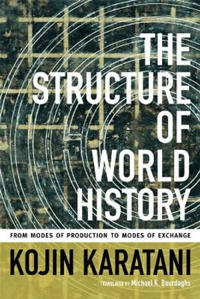Dawn That Never Comes, The: Shimazaki Toson and Japanese Nationalism (Inbunden)
avMichael Bourdaghs
ISBN: 9780231129800 - UTGIVEN: 2003-09-27Sayonara Amerika, Sayonara Nippon: A Geopolitical Prehistory of J-Pop (Övrig)
avMichael Bourdaghs
ISBN: 9780231158749 - UTGIVEN: 2012-03-02From the beginning of the American Occupation in 1945 to the post-bubble period of the early 1990s, popular music provided Japanese listeners with a much-needed release, channeling their desires, fears, and frustrations into a pleasurable and fluid art. Pop music allowed Japanese artists and audienc[...]
Sayonara Amerika, Sayonara Nippon: A Geopolitical Prehistory of J-Pop (Övrig)
avMichael Bourdaghs
ISBN: 9780231158756 - UTGIVEN: 2012-03-02From the beginning of the American Occupation in 1945 to the post-bubble period of the early 1990s, popular music provided Japanese listeners with a much-needed release, channeling their desires, fears, and frustrations into a pleasurable and fluid art. Pop music allowed Japanese artists and audienc[...]
The Structure of World History (Inbunden)
avKojin Karatani, Michael K. (TRN) Bourdaghs, Kojin Karatani
ISBN: 9780822356653 - UTGIVEN: 2014-03In this major, paradigm-shifting work, Kojin Karatani systematically rereads Marx's version of world history, shifting the focus of critique from modes of production to modes of exchange. Karatani seeks to understand both Capital-Nation-State, the interlocking system that is the dominant form of mod[...]
The Structure of World History (Pocket)
avKojin Karatani, Michael K. (TRN) Bourdaghs, Kojin Karatani
ISBN: 9780822356769 - UTGIVEN: 2014-03In this major, paradigm-shifting work, Kojin Karatani systematically rereads Marx's version of world history, shifting the focus of critique from modes of production to modes of exchange. Karatani seeks to understand both Capital-Nation-State, the interlocking system that is the dominant form of mod[...]







